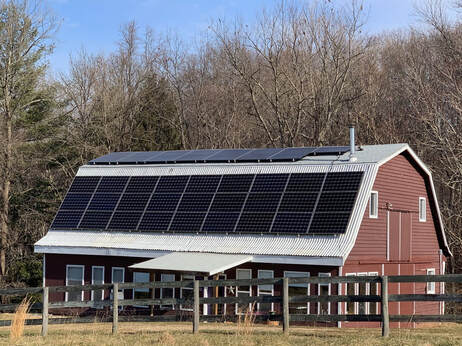Sign their action letter here (Takes 1 Minute) or read on for more info.
We do need to build a lot of solar power, quickly - and with smart policies and incentives guiding it, we can minimize damage to our farmland and forests, and maximize solar development on impervious surfaces and marginal land. A 2019 report by the Abell Foundation, "An Opportunity to get Solar Siting Right," found that Maryland could and should find ways to preserve the best agricultural lands for farming, while steering solar power toward contaminated lands, large rooftops, and sprawling parking lots through smart, proactive planning. A 2020 report by Chesapeake Conservancy, "Optimal Solar Siting for Maryland: A Pilot for Baltimore County and City," found that if just 8.6 % of such optimal sites proved viable for solar, it would be enough to meet Baltimore County and City’s share of solar energy needs. And smart solar siting policies, like the one just approved in Montgomery County, can allow some community solar projects on less-productive farmland while preserving the most productive farmland for agriculture.
On April 1, the House adopted many weakening amendments to the "Climate Solutions Now Act" - and one of them thrusts Maryland in the wrong direction on solar siting. It would create a "Blue Ribbon Solar Land Use Commission," tasked with determining how much solar each county in Maryland should build - based on how much agricultural land that county has, with a bias toward ground-mounted solar on farmland. And the composition of this work group is outrageously unbalanced, excluding land preservationists and environmentalists focused on land use, agricultural policy, and water quality. This commission is set up to move Maryland in a destructive direction on solar siting without a preference for marginal land first.
But it doesn't have to be this way. In 2019, the Senate unanimously passed a bill that would have created a "Commission on the Development of a Blueprint for Solar Energy in Maryland," with a truly balanced and holistic approach to siting solar projects to minimize their environmental and economic impacts; that year, the House never took it up. Unlike this year's eleventh-hour amendment, this bill went through an extensive stakeholder process and was heavily amended to ensure a balanced approach. (Read the bill here.) But time is short: tell your representatives to reject the House amendment on solar siting, and pass a balance solar siting study to fit Maryland's needs.







